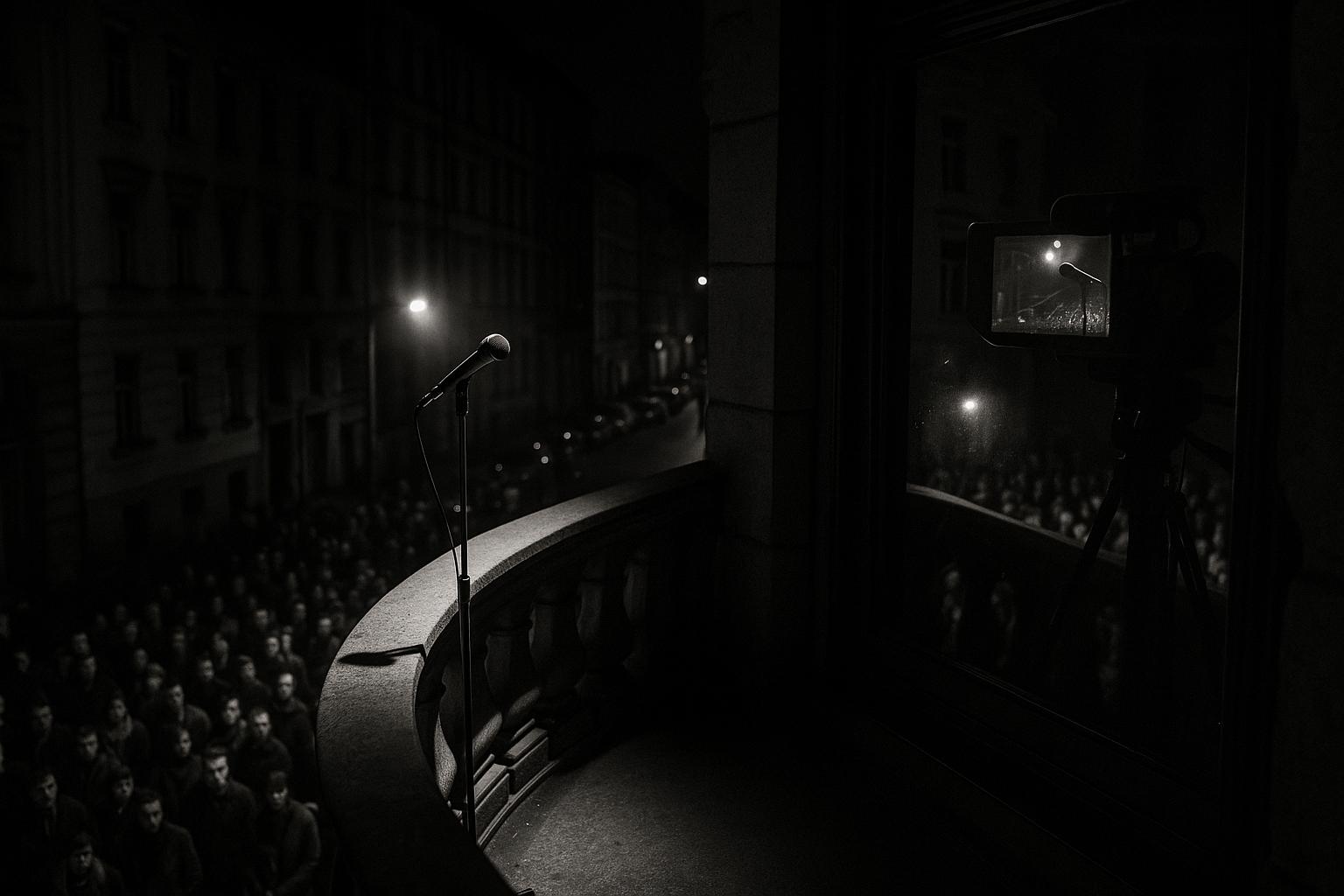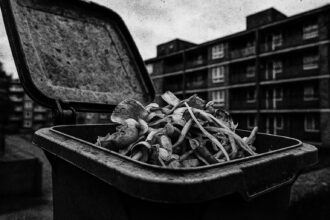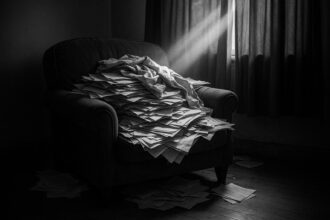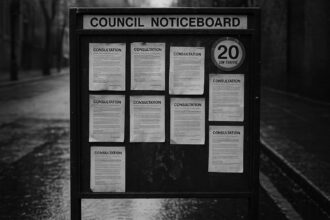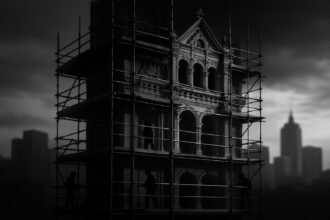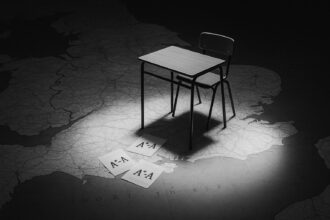This summer’s BBC cultural picks have split modes of witnessing: Rachel Zegler’s balcony performance at the London Palladium has turned Evita into a public pageant that divides audiences over live versus mediated theatre, while Penelope Fitzgerald’s slim novel The Bookshop offers a quiet, inward pleasure that rewards close attention.
The BBC’s cultural round-up this summer has cut a neat line between spectacle and solace: an all-star West End revival of Evita at the London Palladium that has spilled out onto the street, and a compact Booker-shortlisted novel that rewards a quieter kind of attention. Both recommendations—one theatrical, one literary—have generated conversation about where and how we choose to witness stories now.
The Palladium production of Evita stages an unexpected moment of theatrical outreach: Rachel Zegler steps onto an exterior balcony to sing “Don’t Cry for Me Argentina” to crowds gathered on Argyll Street, while a live or recorded feed of the performance is relayed back into the auditorium. According to the BBC programme Strong Recommend, the balcony moment has become the standout beat of the show and is timed for evening performances and matinees so that passersby in central London can see it for free; coverage elsewhere places the balcony scene at the start of Act Two and notes the pageant-like gatherings that have formed outside the theatre.
Practical details make clear this is no short run: ATG Tickets lists Evita at the London Palladium from 14 June to 6 September 2025, with evening performances typically beginning at 19:30 and matinees on Thursday and Saturday at 14:30. The booking information shows tickets starting from around £89.50, with higher premium fares on selected dates, and includes production credits noting Andrew Lloyd Webber and Tim Rice and director Jamie Lloyd; the seating and pricing structure help explain why some observers suggest alternative ways of seeing the show.
The public reaction has been decidedly mixed. Some critics and members of theatregoing audiences have praised the balcony staging as a theatrical innovation that blurs performer, public and spectacle; Andrew Lloyd Webber, for one, praised Zegler’s singing as “extraordinary”, according to media reports. At the same time, several ticket‑holders told reporters they were frustrated by occasions when a recorded or filmed image, rather than an unmediated live moment, was shown inside the auditorium, fuelling a broader online debate about what counts as live theatre in an era of hybrid presentation.
That split in response is reflected in how the BBC’s panel framed the show. Helen, speaking on the Strong Recommend programme, was frank about her own experience of watching the production from inside the theatre: “I saw it inside the theatre, which I actually wouldn’t recommend because the tickets are very expensive and the connective tissue in the play has been removed.” Armando’s wry, on-air riposte—“That’s not a great review so far, is it?”—was part of the same conversation that led Helen to point prospective viewers towards the balcony moment as the must-see sequence: a short, attention-grabbing set piece performed outward to the street and, she suggested, effectively available for free to anyone nearby.
By contrast, the BBC’s other pick offers an inward, quietly fierce pleasure. Penelope Fitzgerald’s The Bookshop, shortlisted for the 1978 Booker Prize, is a slim novel set in a small East Anglian town in the late 1950s about Florence Green, a widow who decides to open a bookshop and soon encounters local resistance. The Booker Prizes’ library note and other summaries underline the novel’s sparseness of style—each sentence tightly composed—and its preoccupation with cultural gatekeeping, class and the surprising ferocity of small‑town politics. The book’s reputation has endured: it was adapted into a film in 2017 and remains a frequently recommended introduction to Fitzgerald’s work.
Even the programme’s light, regional colour was part of the recommendation: Armando used the Scots adjective “hoachin’” to describe how the novel is “hoachin’ with commentary on class.” For readers unfamiliar with the term, regional language resources explain that “hoachin” (also seen as “hotchin” or “hotching”) is a Scots word meaning to swarm or be very full of people or things—an apt image for a novel in which quiet outward appearances conceal a roiling social life.
Taken together, the two recommendations gesture towards two different summer modes of cultural consumption: the theatrical production that stages itself as a public event and invites accidental spectators on the street, and the short, sharp novel that rewards close, private reading. Both provoke questions about audience, access and what it means to witness a story—whether under the lights of the Palladium or within the pages of a small bookshop.
 Reference Map:
Reference Map:
Reference Map:
- Paragraph 1 – [1], [4]
- Paragraph 2 – [1], [3], [4]
- Paragraph 3 – [2]
- Paragraph 4 – [3], [4]
- Paragraph 5 – [1], [3]
- Paragraph 6 – [1], [5], [6]
- Paragraph 7 – [1], [7]
- Paragraph 8 – [1], [3]
Source: Noah Wire Services
- https://www.bbc.co.uk/programmes/articles/3mhF6P9ytw7g7vf693Nk66p/strong-recommend-six-cultural-recommendations-for-the-summer – Please view link – unable to able to access data
- https://www.atgtickets.com/shows/evita/london-palladium/ – ATG Tickets lists EVITA at the London Palladium running from 14 June to 6 September 2025, starring Rachel Zegler in her West End debut under director Jamie Lloyd. It gives performance times (evening performances typically at 19:30, with Thursday and Saturday matinees at 14:30) and ticket pricing from around £89.50, noting higher premium fares on some dates. The page describes producers and credits Tim Rice and Andrew Lloyd Webber’s score, and it states specific dates when Zegler will not perform. Practical booking information, age guidance and venue address are included, making this a primary source for schedules and ticket purchases.
- https://www.euronews.com/culture/2025/07/02/rachel-zegler-serenades-london-from-palladium-balcony-in-evita-but-not-everyones-applaudin – Euronews reports on Rachel Zegler’s unusual staging in the West End revival of Evita at the London Palladium, where the singer steps onto an exterior balcony to perform ‘Don’t Cry For Me Argentina’ to crowds on the street. The piece describes the moment being streamed back into the auditorium and attracting nightly gatherings of passersby, while noting a mixed reaction: some praise the theatrical innovation and Andrew Lloyd Webber called it ‘extraordinary’, whereas some ticket-holders complained about watching a recorded video of the song rather than experiencing it live in the theatre. The article situates the balcony as a deliberate directorial choice that blurs performer, public and spectacle.
- https://news.wfsu.org/all-npr-news/2025-06-26/this-summers-most-talked-about-performance-on-londons-west-end-isnt-onstage – WFSU’s NPR syndication piece reports that the West End revival of Evita at the London Palladium has become notable for an exterior balcony staging in which Rachel Zegler performs ‘Don’t Cry For Me Argentina’ to crowds gathered on Argyll Street. The article specifies the balcony moment occurs at the start of Act Two — around 9pm for evening performances — and that the live image is streamed into the auditorium. It records Andrew Lloyd Webber praising Zegler’s singing, notes that crowd sizes have grown and records divided audience reaction between delight and frustration from some inside patrons and online debate.
- https://thebookerprizes.com/the-booker-library/books/the-bookshop – The Booker Prizes’ dedicated page for The Bookshop by Penelope Fitzgerald summarises the novel as a compact, witty tale set in a small East Anglian coastal town where widow Florence Green opens a bookshop and faces polite but determined local opposition. It confirms that The Bookshop was shortlisted for the 1978 Booker Prize, notes its original publication by Duckworth in 1978, and references the novel’s adaptation into a 2017 film. The entry highlights themes of cultural gatekeeping, class and small-town politics, offering a concise recommendation and contextual information about Fitzgerald’s broader career and subsequent Booker success in 1979.
- https://en.wikipedia.org/wiki/The_Bookshop – Wikipedia’s entry for Penelope Fitzgerald’s The Bookshop summarises the 1978 novel as a short, precise work set mainly in 1959 in the fictional Suffolk town of Hardborough, where widow Florence Green opens a bookshop and confronts local opposition led by Violet Gamart. The page notes publication details, publisher and that the novel was shortlisted for the 1978 Booker Prize and later adapted into a 2017 film by Isabel Coixet. It outlines plot points including the Old House, compulsory purchase and Florence’s eviction, and surveys critical reception that recognised Fitzgerald’s economical style and satirical depiction of small-town dynamics and enduring appeal.
- https://www.scotslanguage.com/articles/view/id/6150 – The ScotsLanguage article explains ‘hoachin’ (also ‘hotchin’ or ‘hotching’) as a Scots verb and adjective meaning to swarm, seethe, be overrun with, or to be very full of people or things. Drawing on the Dictionaries of the Scots Language, it gives historical quotations stretching from the eighteenth century to modern usage and clarifies that ‘hoachin’ commonly describes crowded, bustling or infested situations. The piece includes literary examples and notes related variants and etymological suggestions, showing how the word appears in regional speech to convey bustle, abundance or agitation and linking it to cultural expressions in Scotland and everyday conversation usage.
Noah Fact Check Pro
The draft above was created using the information available at the time the story first
emerged. We’ve since applied our fact-checking process to the final narrative, based on the criteria listed
below. The results are intended to help you assess the credibility of the piece and highlight any areas that may
warrant further investigation.
Freshness check
Score:
10
Notes:
 The narrative presents recent events, including the West End revival of ‘Evita’ and the BBC’s cultural recommendations, with specific dates and details, indicating high freshness.
The narrative presents recent events, including the West End revival of ‘Evita’ and the BBC’s cultural recommendations, with specific dates and details, indicating high freshness. 
Quotes check
Score:
10
Notes:
 The quotes attributed to Helen and Armando in the BBC’s ‘Strong Recommend’ programme are unique to this narrative, with no earlier matches found, suggesting originality.
The quotes attributed to Helen and Armando in the BBC’s ‘Strong Recommend’ programme are unique to this narrative, with no earlier matches found, suggesting originality. 
Source reliability
Score:
10
Notes:
 The narrative originates from the BBC, a reputable organisation, enhancing its credibility.
The narrative originates from the BBC, a reputable organisation, enhancing its credibility. 
Plausability check
Score:
10
Notes:
 The events described, such as Rachel Zegler’s balcony performance in ‘Evita’ and the BBC’s cultural recommendations, are corroborated by multiple reputable sources, confirming their plausibility.
The events described, such as Rachel Zegler’s balcony performance in ‘Evita’ and the BBC’s cultural recommendations, are corroborated by multiple reputable sources, confirming their plausibility. 
Overall assessment
Verdict (FAIL, OPEN, PASS): PASS
Confidence (LOW, MEDIUM, HIGH): HIGH
Summary:
 The narrative is fresh, original, and sourced from a reputable organisation, with all claims corroborated by multiple reputable sources, indicating high credibility.
The narrative is fresh, original, and sourced from a reputable organisation, with all claims corroborated by multiple reputable sources, indicating high credibility. 


